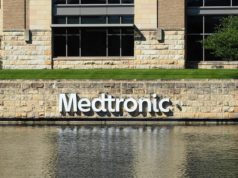 Reduced effectiveness of treatment and increased running costs are likely to have driven down the cost‐effectiveness of cardiac care during the COVID‐19 pandemic, according to an editorial published in the Journal of Cardiac Surgery this week.
Reduced effectiveness of treatment and increased running costs are likely to have driven down the cost‐effectiveness of cardiac care during the COVID‐19 pandemic, according to an editorial published in the Journal of Cardiac Surgery this week.
The paper, authored by Fatima Osman and Mohamad Bashir (Royal Blackburn Teaching Hospital, Blackburn, UK), suggests that the delivery of cardiovascular care has been stifled during the pandemic to adhere to infection control measures as a way of protecting patients and the workforce at large.
They note that the combination of postponing elective cardiovascular surgeries, reduced acute care and long‐term cardiac damage directly resulting from COVID‐19 will likely have increased the demand for cardiac care, particularly from patients presenting with more severe symptoms. The combination of increased demand and inhibited supply will likely result in huge backlog of unmet patients’ needs, they write.
Writing from a UK-perspective, the authors of the study suggest that the long-term impact of the COVID-19 pandemic on the field of cardiothoracic surgery will include stunted development of the field in the UK, with trainees experiencing delayed progression as a result of reduced operative exposure and cancellation of examinations and teaching.
With an increasing focus on remote consultations, the authors also point to limitations to this approach, including not being able to examine patients, inability to measure real‐time basic observations such as heart rate and blood pressure and connectivity issues which all reduce the amount of information available to capture.
Furthermore, they add, clinical research has seen significant delays due to the challenges of monitoring and recruiting study participants whilst conforming to social distancing guidelines.
Additionally, they note that a combination of postponement of elective cardiovascular surgeries, reduced acute care and long‐term cardiac damage directly resulting from COVID‐19 will likely cause increased demand for cardiac care, particularly from patients presenting with more severe symptoms.
They write: “There is robust evidence that COVID‐19 has bottle‐necked the supply of cardiac care; for example, a recent survey has shown that 36% of primary PCI centers have needed to close during the pandemic. The combination of increased demand and inhibited supply means that it will likely take a number of years for cardiology to recover from the impact of the pandemic.”













